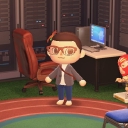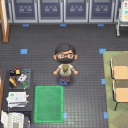If a tree falls on a Deserted Island and no one documents it, does it make a noise?
Alanna Burke (Documentation, Training, and Developer Advocacy @ amazee.io) | @aburke626
| 1:00 EDT
AbstractOne of the biggest hurdles that documentation writers face in maintaining documentation is staying on top of everything as it changes. We need to know what’s going on in the organization to be aware of pending changes to the code, so we’re not blindsided by code changes that may break documentation links, and cause docs to be incorrect or outdated. Sometimes it can feel like we’re just trying to catch up with what everyone else has done, which can be exhausting and frustrating. Devops teams tend to move fast and break things, and that doesn’t always work with how technical writers want to operate.
Ideally, engineers would update the documentation as they update code or add functionality, or work with you to update them as the coded feature is being worked on, but that doesn’t always happen. Additionally, the documentation team often has a better grasp of what is important to document for the end user, and is the team that bridges the knowledge gap between the engineers and the end users.
In this talk, we’ll go over strategies for keeping your documentation up to date when you have many engineers and fewer documentation writers.
Speaker Biography
After ten years as a back-end developer, Alanna decided a change was in order. Still carrying a torch for Drupal, content management systems, and helping others, she is now working as a documentation writer, trainer, and developer advocate at Amazee.io. Alanna also serves as a track chair for DrupalCon North America, is on the leadership team of Drupal Diversity and Inclusion, and serves the Drupal Community Working Group as an ambassador to Drupal Diversity and Inclusion. The proud owner of many pets, including several guinea pigs, she is also very involved in animal rescue.














